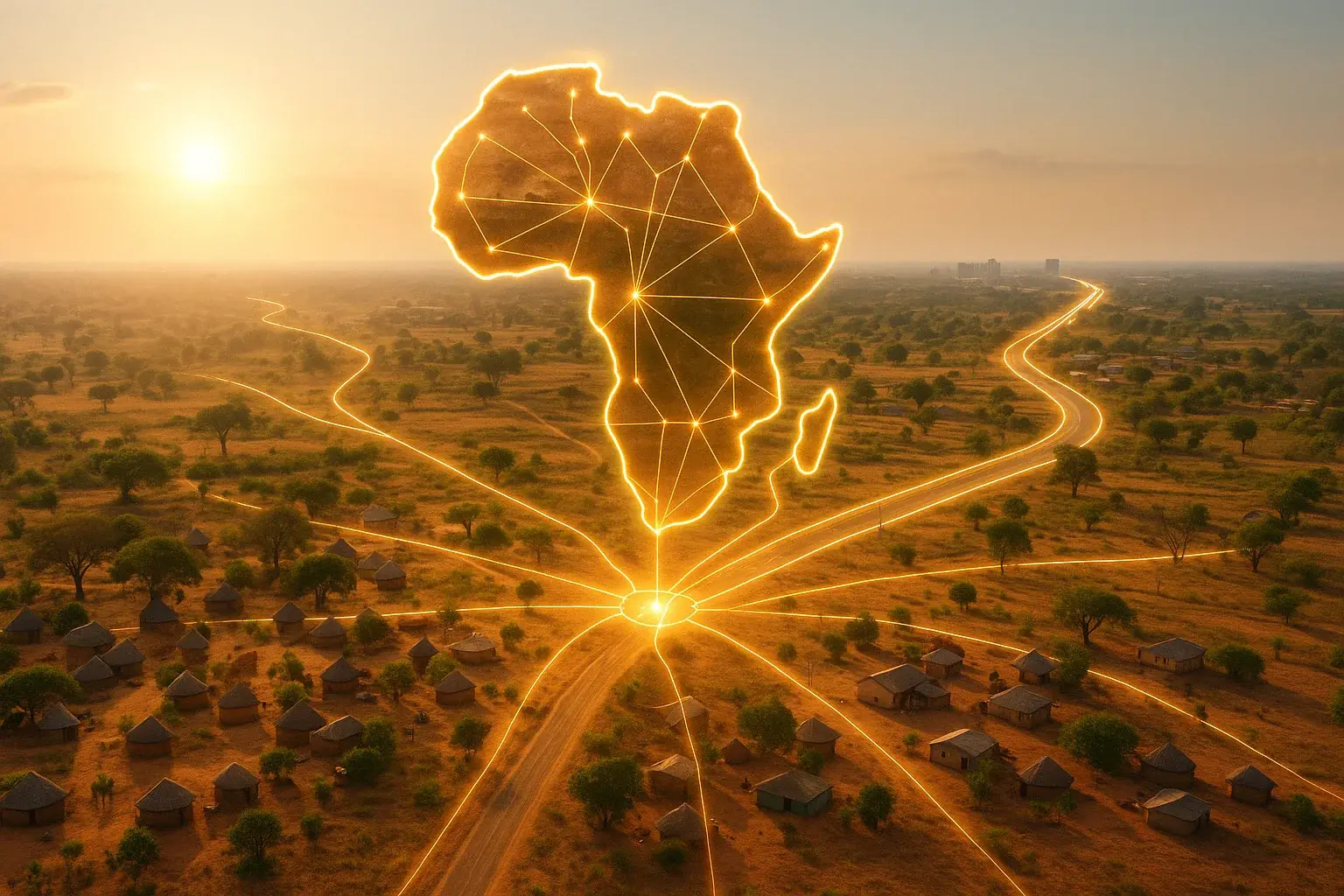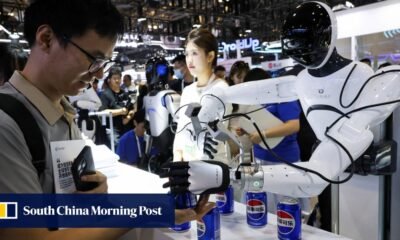Ethics & Policy
Best Sci-Fi Novels: 12 Science Fiction Books That Teach You About the Future Better Than Any Scientist

12 Science Fiction Books That Teach You About the Future Better Than Any Scientist (Picture Credit – Instagram)
Science fiction has long been the genre that pushes the boundaries of imagination, diving into possible futures shaped by technology, society, and the human condition. Through futuristic settings, advanced technologies, and explorations of unknown worlds, these stories reveal more about where we are headed than some of the best scientific studies. The books on this list do more than entertain—they challenge us to think critically about what the future could hold and how we, as a society, might adapt. From dystopian warnings to utopian possibilities, these 12 science fiction books explore the future with insights that resonate today, offering wisdom about where we might be going and how we can shape that journey.
1. The Ministry for the Future by Kim Stanley Robinson
‘The Ministry for the Future’ is a visionary novel that explores how humanity might respond to the looming threat of climate change. Set in a near future where extreme weather events have become catastrophic, the novel follows an international organization tasked with protecting future generations. Kim Stanley Robinson blends scientific precision with political and social insights, showing how global cooperation and technological innovation could be the key to overcoming the climate crisis.

2. The Left Hand of Darkness by Ursula K. Le Guin
Le Guin’s ‘The Left Hand of Darkness’ is a thought-provoking exploration of gender, culture, and diplomacy. Set on a planet where the inhabitants are androgynous, the novel questions the binary nature of gender and forces readers to reconsider their assumptions about identity and society. As we move toward a more inclusive future, this book offers valuable insights into how societal norms may evolve and how we might navigate those changes.
3. Neuromancer by William Gibson
Considered one of the defining works of cyberpunk, ‘Neuromancer’ is a fast-paced thriller that delves into the world of artificial intelligence, cyberspace, and corporate control. William Gibson’s vision of the future is one where technology blurs the line between reality and virtual worlds, offering a prophetic glimpse into the rise of the internet and its impact on society. The novel explores issues like AI ethics, hacking, and corporate dominance—topics that continue to shape our world today.
4. The Windup Girl by Paolo Bacigalupi
Set in a future where climate change and bioengineering have drastically altered the world, ‘The Windup Girl’ imagines a future defined by environmental collapse and genetic manipulation. Bacigalupi’s novel teaches us about the potential dangers of unchecked genetic engineering, environmental degradation, and corporate control over resources. This cautionary tale shows how scientific advancements can be a double-edged sword, potentially leading to progress and destruction.

5. Brave New World by Aldous Huxley
In ‘Brave New World’, Huxley envisions a future where human beings are controlled through genetic engineering, psychological manipulation, and a drug called Soma that suppresses emotions. The novel offers a stark critique of a society that prioritizes stability and conformity over individual freedom and creativity. Huxley’s warning about the dangers of a society obsessed with pleasure and control remains incredibly relevant in an era of consumerism and technological advancement.
6. The Diamond Age by Neal Stephenson
‘The Diamond Age’ takes us into a future dominated by nanotechnology, where personalized, interactive books can teach children about the world and shape their development. Neal Stephenson’s novel offers a glimpse into how technology could revolutionize education and society, creating new opportunities for learning and individual growth. The book also raises questions about inequality and how technology might widen the gap between the rich and the poor.
7. Klara and the Sun by Kazuo Ishiguro
Kazuo Ishiguro’s ‘Klara and the Sun’ presents a haunting vision of a future where artificial intelligence is integrated into everyday life. The story follows Klara, an AI companion for children, as she navigates her understanding of human emotions, relationships, and the role of technology in society. Ishiguro’s exploration of AI’s potential to replace human connections raises ethical questions about the future of technology, love, and humanity.
8. Dune by Frank Herbert
Frank Herbert’s ‘Dune’ is a monumental work that explores the future of humanity through the lens of ecology, politics, and religion. Set on the desert planet Arrakis, the novel examines the complex interplay between power, resources, and environmental stewardship. With themes of imperialism, resource management, and ecological balance, ‘Dune’ teaches us about the delicate relationship between humanity and the natural world, offering lessons that are increasingly relevant as we confront climate change.
9. This Is How You Lose the Time War by Amal El-Mohtar and Max Gladstone
This unique novel is a poetic, time-bending tale of two rival agents from warring futures who fall in love through letters sent across time and space. As the story unfolds, ‘This Is How You Lose the Time War’ explores themes of power, rebellion, and connection, offering readers a glimpse into how technology, war, and love might evolve in the distant future. The book beautifully combines science fiction with lyrical prose, offering a meditation on the nature of time and fate.

10. The Three-Body Problem by Liu Cixin
Liu Cixin’s ‘The Three-Body Problem’ offers a unique perspective on humanity’s future through the lens of first contact with an alien civilization. The novel raises questions about technological advancement, ethics, and the fate of humanity in the face of an overwhelming existential threat. Its exploration of the scientific method, game theory, and cosmic sociology makes it one of the most intellectually stimulating science fiction novels of the 21st century, offering lessons on cooperation, survival, and the unknown.
11. Station Eleven by Emily St. John Mandel
Set in a post-apocalyptic world where a pandemic has wiped out most of humanity, ‘Station Eleven’ explores themes of survival, art, and what it means to be human in a collapsed civilization. Through its examination of how people rebuild after catastrophe, the novel offers insights into resilience, community, and the importance of culture. Mandel’s vision of the future is both haunting and hopeful, reminding us that even in the darkest times, humanity can find ways to endure.
12. The Handmaid’s Tale by Margaret Atwood
Margaret Atwood’s ‘The Handmaid’s Tale’ presents a terrifying dystopian future where a theocratic regime strips women of their rights and reduces them to reproductive vessels. The novel explores themes of power, gender, and resistance, offering a chilling warning about the fragility of women’s rights and the potential for authoritarianism to take root in society. ‘The Handmaid’s Tale’ remains an essential read for understanding the dynamics of power and control in a future that feels all too possible.

Science fiction often serves as a mirror, reflecting our present-day concerns through visions of the future. These 12 books not only entertain with imaginative worlds but also provide us with valuable insights about the direction in which humanity might be heading. From the ecological warnings to the ethical dilemmas, each of these novels offers lessons that can help us navigate the complexities of modern life and anticipate the challenges of the future.
Ethics & Policy
Ugandan Editors Tackle AI Regulation, Ethics, and Journalism Integrity at WAN-IFRA Workshop

Artificial intelligence (AI) regulation, ethics, and newsroom integration took center stage at a workshop held on Aug. 20, 2025, organized by the Uganda Editors Guild in collaboration with the World Association of News Publishers (WAN-IFRA). The session brought together editors and media professionals to discuss how newsrooms can responsibly adopt AI tools while addressing legal, policy, and ethical challenges.
Legal and Policy Landscape
The Collaboration on International ICT Policy for East and Southern Africa (CIPESA) highlighted the lack of AI-specific legislation in Uganda but pointed to several existing laws that indirectly govern AI use. Key among these is the Uganda Data Protection and Privacy Act of 2019, which regulates personal data processing and includes provisions on automated decision-making under Section 27.
Other legal instruments discussed included:
- Copyright and Neighboring Rights Act — Protects intellectual property and authors’ rights.
- National Payment Systems Act — Grants the central bank oversight over payment systems.
- National Information Technology Authority Uganda (NITA-U) Act — Establishes NITA-U to enhance public service delivery and drive digital transformation.
- Uganda Communications Act (2013) — Establishes the Uganda Communications Commission, responsible for regulating AI use within the communications sector.
- Regulation of Interception of Communications Act (2010) — Requires telecom providers to install AI-enabled systems for lawful interception of communications.
- Anti-Terrorism Act and Computer Misuse Act — Provide frameworks for security, cybersecurity, and AI-assisted monitoring of digital threats.
National Strategies and AI Integration
The workshop also reviewed Uganda’s broader digital policy frameworks:
- Vision 2040 — Aims to transform Uganda into a middle-income economy by 2040.
- National Fourth Industrial Revolution (4IR) Strategy (2020) — Positions Uganda as a continental hub for emerging technologies.
- Third National Development Plan (NDP III) — Outlines development priorities, including AI and machine learning integration into national projects.
These strategies underscore Uganda’s recognition of AI as a driver of economic growth, though implementation remains fragmented without a dedicated regulatory framework.
AI in Newsrooms: Opportunities and Risks
CIPESA’s Programmes Manager-Legal, Edrine Wanyama, cited findings from the Artificial Intelligence in Eastern Africa Newsrooms report, noting that AI can enhance newsroom productivity through faster reporting, automated fact-checking, and improved detection of misinformation.
However, the workshop also highlighted several risks:
- Spread of disinformation and misinformation
- Reduced accuracy due to speed-driven reporting
- Over-reliance on AI at the cost of creativity
- Erosion of journalistic ethics and integrity
- Potential job losses among journalists and editors
Ethics and Transparency
Dr. Peter G. Mwesige, Chief of Party at CIPESA, urged editors to cover AI critically rather than focusing only on its capabilities. He emphasized the need for explanatory, evidence-based reporting and called for transparency when using AI in editorial tasks.
“AI can assist with brainstorming, editing, and transcription, but journalists must still put in the hard work,” Mwesige said.
Recommendations for Responsible AI Use
CIPESA concluded the workshop by presenting key recommendations for integrating AI ethically and effectively in newsrooms:
- Align with international standards like the Paris Charter on AI.
- Respect copyright and intellectual property rights.
- Develop internal newsroom policies for AI adoption.
- Collaborate across media houses to create best practices.
- Invest in journalist training on ethical AI usage.
- Strengthen fact-checking systems to combat misinformation and deepfakes.
- Prioritize human oversight when deploying AI-driven tools.
The workshop underscored the urgent need for Uganda to balance AI-driven innovation with data protection, ethical journalism, and regulatory safeguards to ensure responsible adoption within the media industry.
Ethics & Policy
Woman Rants About Gen Z Employee Walking Out After Not Getting Paid For Extra Hours– X Post Backfires- Viral Workplace Toxicity | Viral

Woman’s post on Gen Z goes viral. Image Source: AI generated image
It seems like Gen Z employees- all around the country- have earned a reputation of being rather ‘unadjustable’. Social media is full of older generation employees ranting about Gen Zs and their work ethics. Adding another incident to the list, a woman recently shared a rant on the internet, where she expressed her disappointment over a young employee walking out– after the company refused to pay him for ‘additional hours’. As per the post, the employee was new and began to demand additional pay after working for two months or so. As soon as the post on the same was shared online, it went viral; however, it ended up backfiring! Most netizens sided with the employee and lauded his attempt to ask for ‘fair pay’. As per the post, the woman also spoke on how new employees should be willing to ‘struggle’ and learn to have more patience.
Times Now could not confirm the details and the authenticity of the post.
Check out the viral post:
“Met a GenZ guy recently who had just landed a job at a tier 1 company. Within no time, he started demanding extra pay for every additional hour, and when he didn’t get it, he walked out. This is the mindset now! No willingness to struggle, no commitment to putting in the hours, no patience to prove themselves. Just quick money, quick increments, and zero accountability. The work ethic gap between generations is becoming too real,” the post read.
“It’s very easy to sit behind a screen and glorify “taking a stand.” But in the real world, the same GenZ folks with this “don’t want to struggle, don’t want to adjust” mindset will walk into your office tomorrow for jobs & will get rejected instantly because of this attitude. Let’s be clear: I’m not against asking for fair compensation. Everyone deserves it! but timing and maturity matter. If you’ve barely completed 2 months at a company and already start throwing tantrums over extra hours, that’s not professionalism, that’s entitlement. Every workplace has policies. If you go against them, the company won’t think twice before showing you the exit. That’s the reality,” the post further read.
“Growth comes when you first prove yourself, build credibility, show commitment , then you negotiate from a position of strength. Without output, without patience, without discipline, asking for increments or demanding special treatment doesn’t make you bold. It just makes you replaceable. So instead of cheering this as ‘courage,’ better to call it what it is , ‘immaturity’ that will cost them more in the long run,” the post concluded.
The post was shared on X (formerly Twitter), by the handle ‘AyushiiDoshiii’. The post was shared yesterday and pulled more than 172K views from people.


Here’s how social media reacted:
“They know that they are not going to get anything even after the struggle and commitment, as most who are sitting above are basically exploiters. This is from where the mindset is coming,” a user said.
“No willingness to struggle??? Struggle unfairly? Why? It’s not worth it. If a company is unfairly treating you, why treat it fairly, this is not the era of slavery,” added a second person in the comment section.
“Finally, someone is trying to bring first world work culture to India where its own citizens are exploited and paid peanuts and then the companies boast about it,” added another person. “He was right,” said another.
Ethics & Policy
Kemkomdigi Mechanism Evaluation To Ensure AI Grows According To Ethics

JAKARTA – The Ministry of Communication and Digital Affairs (Kemkomdigi) has begun to strengthen the governance of national artificial intelligence (AI) by preparing a special evaluation mechanism. The goal is that every innovation in the AI sector continues to run in accordance with the principles of ethics and social responsibility.
The evaluation mechanism is contained in the draft Guidelines for Artificial Intelligence (KA) Ethics, which allows incident reporting as well as encourages self-assessment from AI developers.
“Gradually, the evaluation of the application of ethical guidelines will continue to ensure ethical and responsible train ethics governance,” said Director of Artificial Intelligence and New Technology Ecosystem of the Ministry of Communication and Industry, Aju Widya Sari, as quoted by ANTARA.
In addition to ethical guidelines, the government is also preparing the White Book of the National AI Roadmap which is designed to go hand in hand with the preparation of these guidelines.
According to Aju, this step is important so that AI development in Indonesia is in line with the development of AI ethics at the global level, as well as strengthening collaboration between stakeholders.
In the draft guidelines, ethical aspects are emphasized as an important basis because the development and utilization of AI can have a direct impact on basic human rights.
The principles raised include inclusiveness, humanity, security, accessibility, transparency, credibility, accountability, personal data protection, environmental sustainability, and intellectual property protection.
The application of AI ethics is believed to provide three main benefits, namely economic sustainability, social and environmental. From an economic perspective, AI has the potential to create innovations while at the same time encouraging growth. For social, ethical AI can expand access to public services to be more equal. As for the environment, this technology can help optimize the use of resources so that it is more efficient and sustainable.
The English, Chinese, Japanese, Arabic, and French versions are automatically generated by the AI. So there may still be inaccuracies in translating, please always see Indonesian as our main language.
(system supported by DigitalSiber.id)
-

 Business1 week ago
Business1 week agoThe Guardian view on Trump and the Fed: independence is no substitute for accountability | Editorial
-
Tools & Platforms3 weeks ago
Building Trust in Military AI Starts with Opening the Black Box – War on the Rocks
-

 Ethics & Policy1 month ago
Ethics & Policy1 month agoSDAIA Supports Saudi Arabia’s Leadership in Shaping Global AI Ethics, Policy, and Research – وكالة الأنباء السعودية
-

 Events & Conferences4 months ago
Events & Conferences4 months agoJourney to 1000 models: Scaling Instagram’s recommendation system
-

 Jobs & Careers2 months ago
Jobs & Careers2 months agoMumbai-based Perplexity Alternative Has 60k+ Users Without Funding
-

 Education2 months ago
Education2 months agoVEX Robotics launches AI-powered classroom robotics system
-

 Funding & Business2 months ago
Funding & Business2 months agoKayak and Expedia race to build AI travel agents that turn social posts into itineraries
-

 Podcasts & Talks2 months ago
Podcasts & Talks2 months agoHappy 4th of July! 🎆 Made with Veo 3 in Gemini
-

 Podcasts & Talks2 months ago
Podcasts & Talks2 months agoOpenAI 🤝 @teamganassi
-

 Education2 months ago
Education2 months agoMacron says UK and France have duty to tackle illegal migration ‘with humanity, solidarity and firmness’ – UK politics live | Politics





















